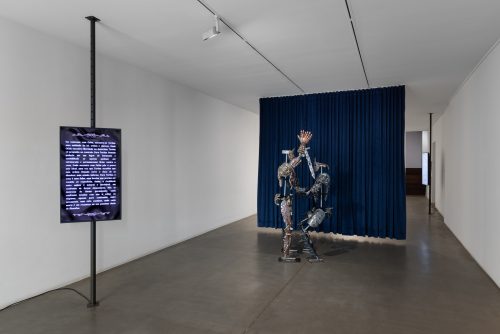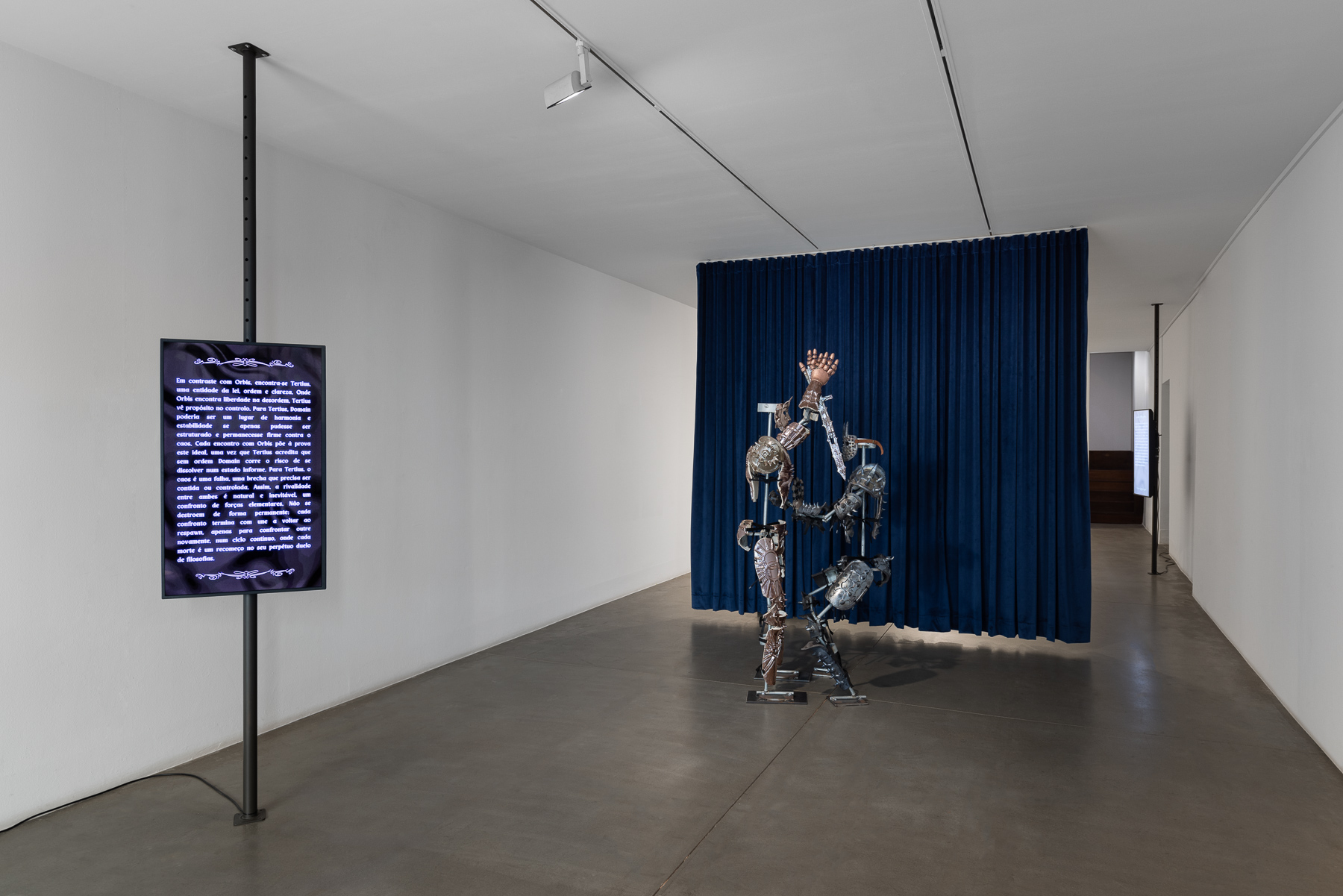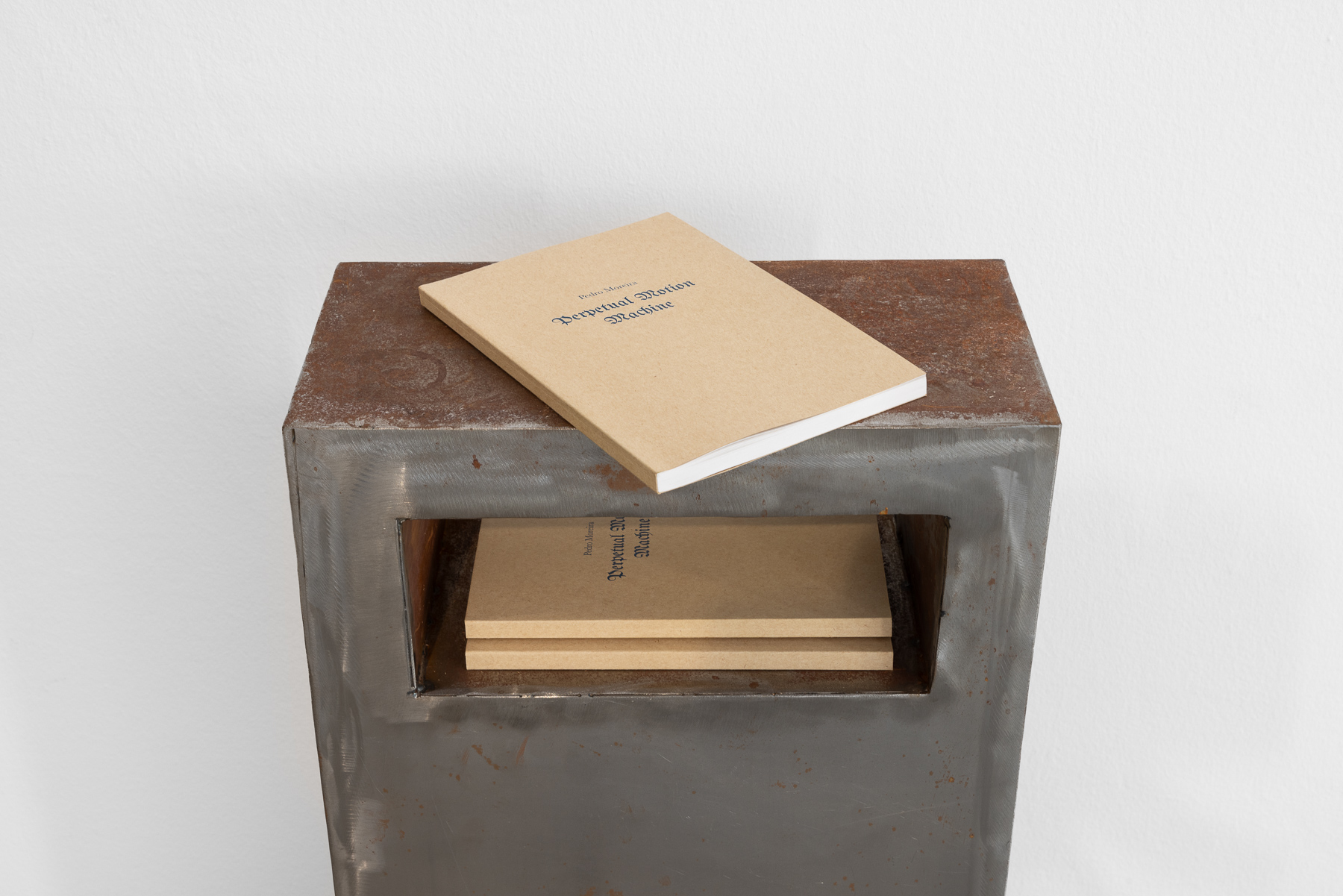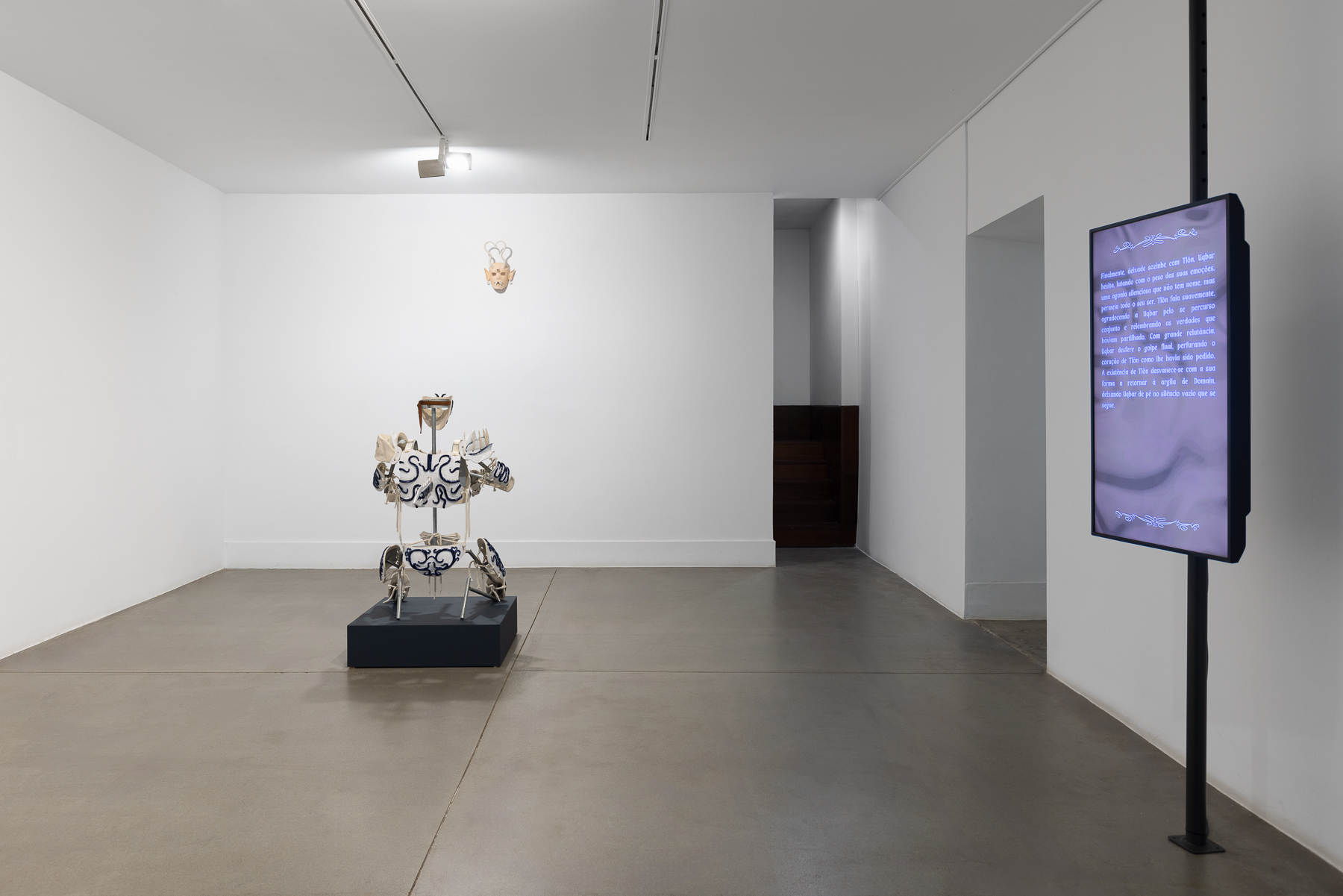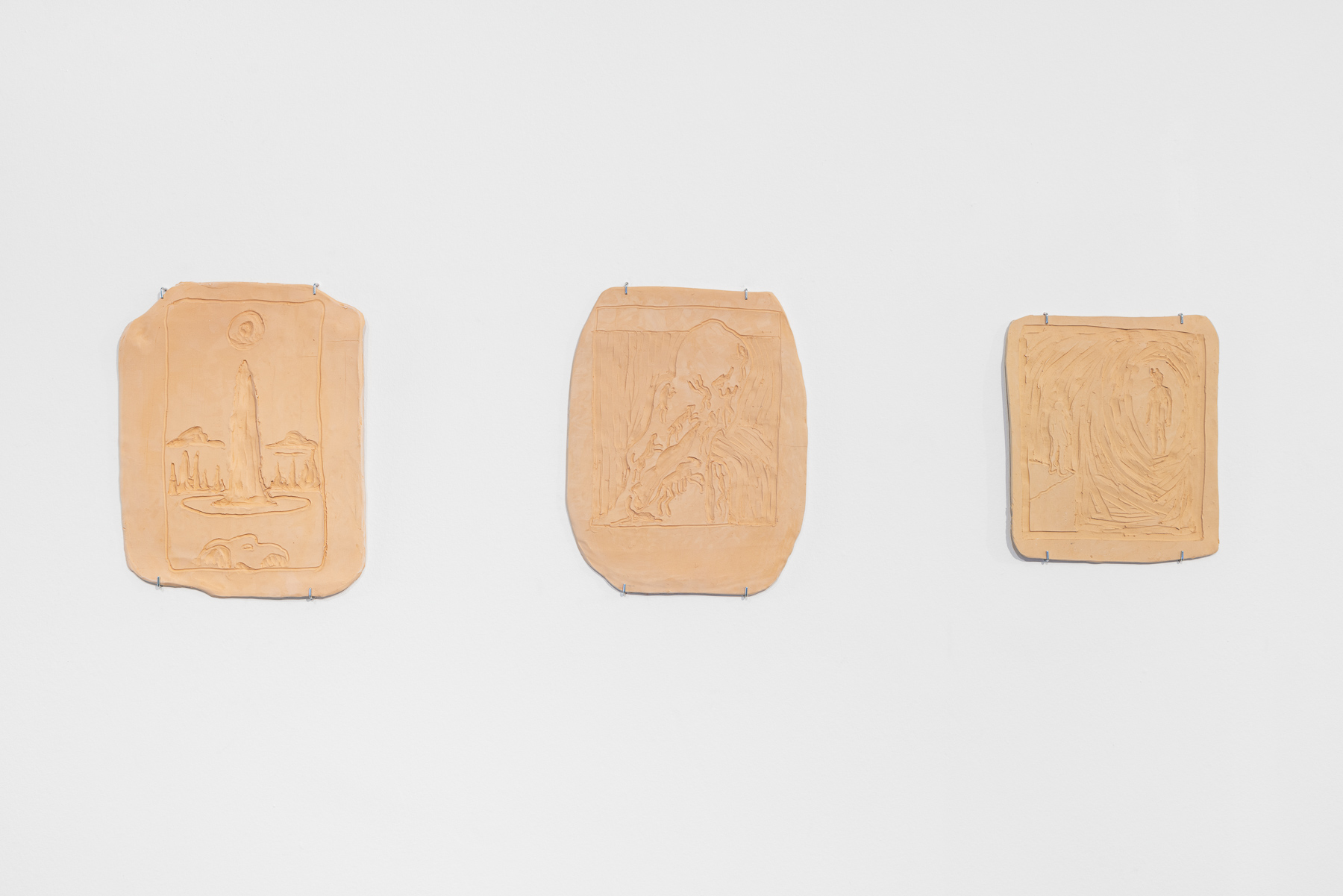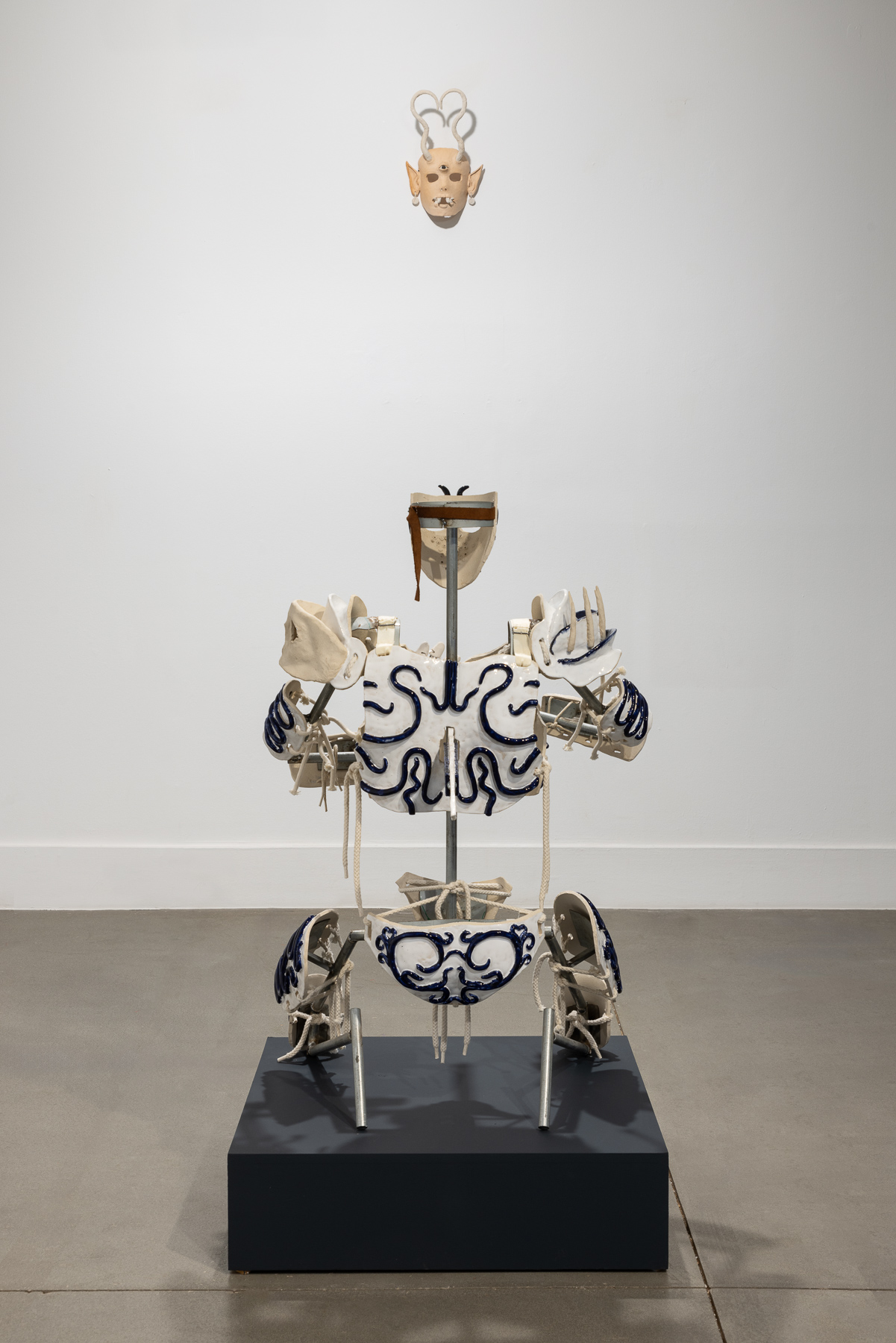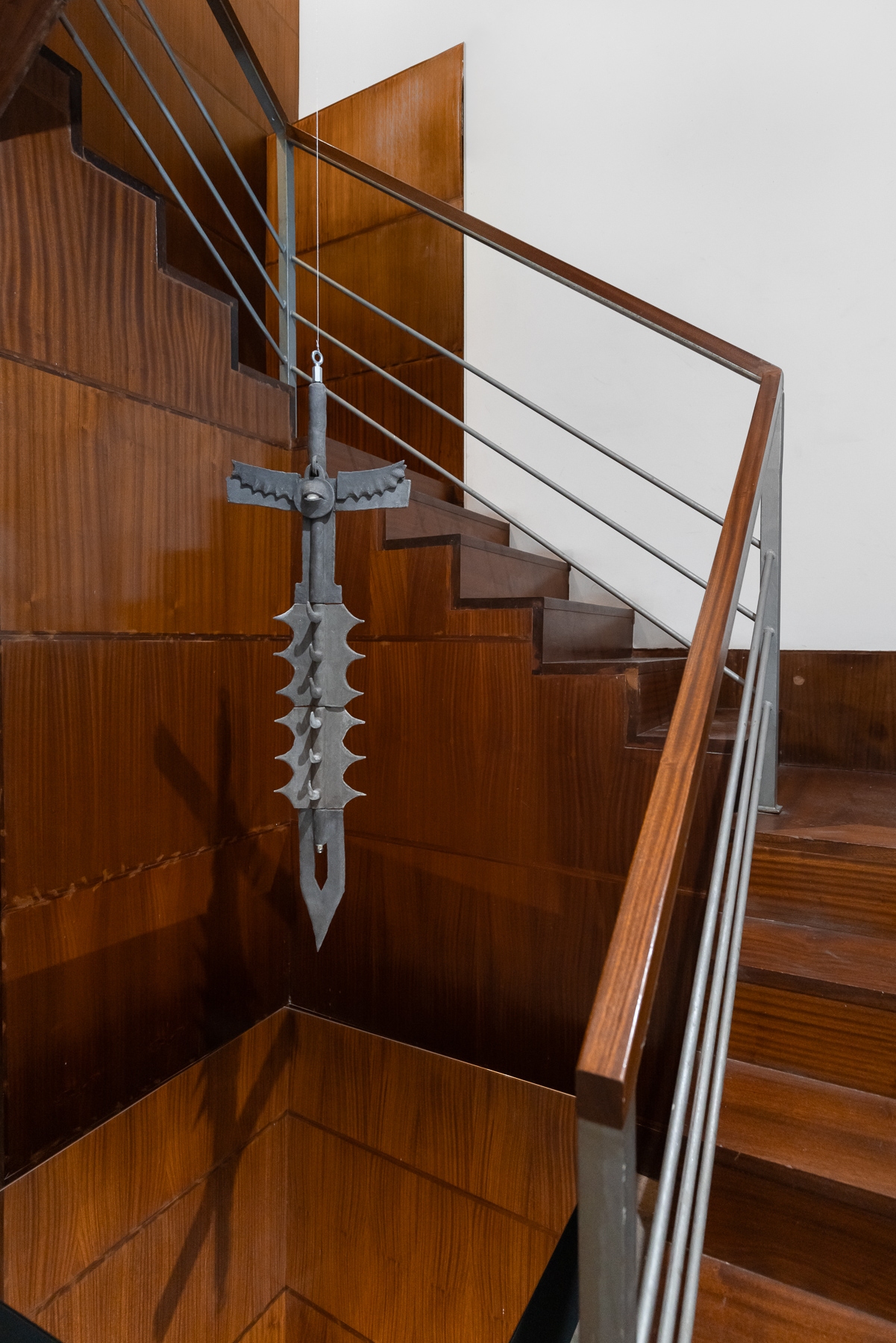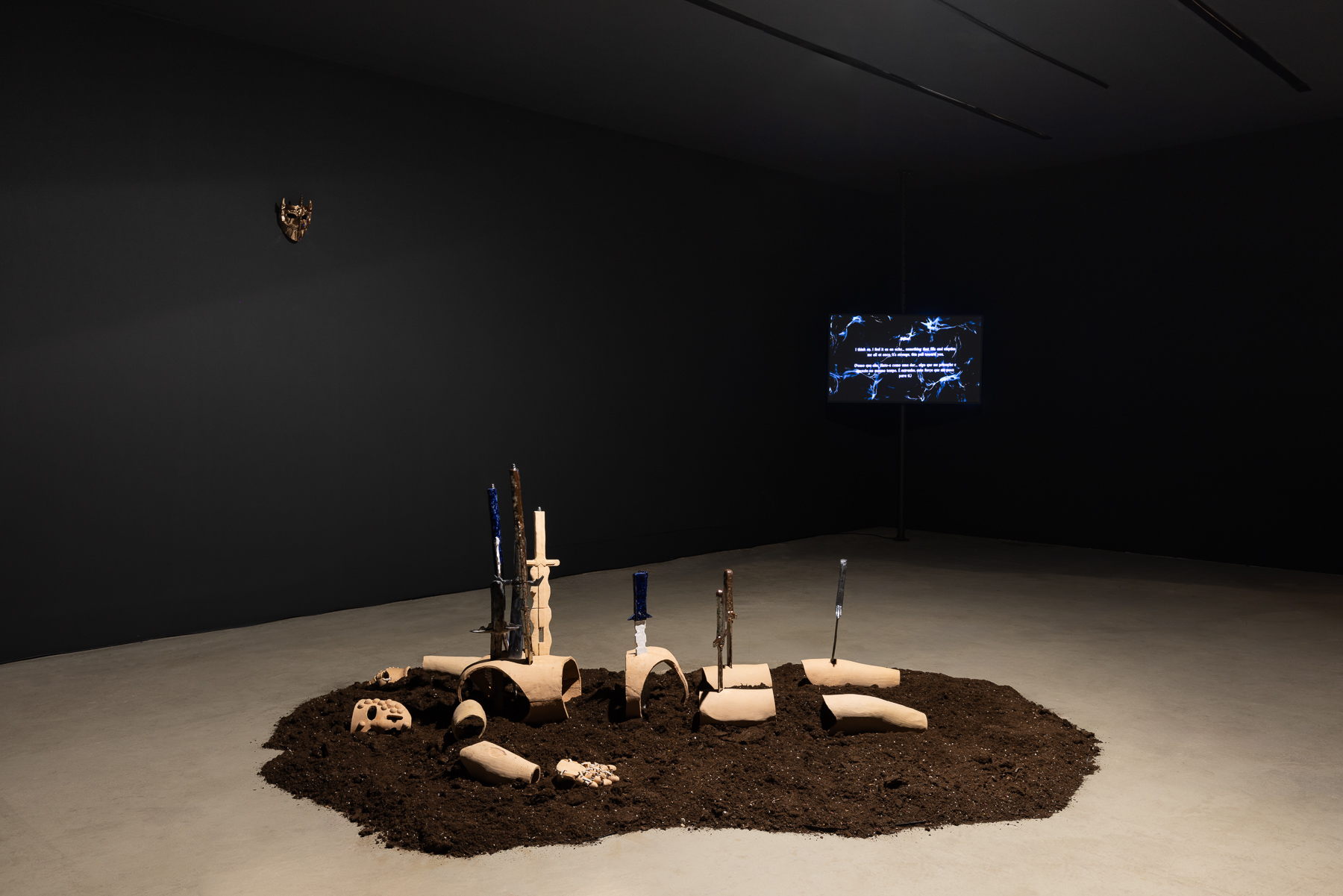– 30.03.2025
Perpetual Motion Machine presents the final chapter of the speculative narrative that describes life in Domain, a virtual and terraformed reality created by Pedro Moreira in 2017 and activated since then through different moments, disciplines, materials, and artistic contexts.
In this fictional universe, we can follow the existence, at once utopian and dystopian, of four tripplesapiens who inhabit a world where death is a process of reappearance, but also the result of an incorruptible bond in exchange for eternal life. Characters who develop relationships of tension, conflict or complementarity with each other, as they are intrinsically aligned with a cosmogony defined by order, chaos, neutrality and truth.
Delving into theological realms and esotericism to an equal extent, this project is loosely inspired by Mormon dogma — introduced to Pedro Moreira since their childhood — while also suggesting analogies with texts from other religions, such as Christianity, Judaism or Hinduism, drawing on medieval Kabbalism and the figure of the Golem, as well as some of the mystical and occult practices of the Hermetic Order of the Golden Dawn and images from its Tarot oracle. Likewise, the artist explores an intimate connection with literature, namely with the short story Tlön, Uqbar, Orbis Tertius, by Argentinian writer Jorge Luis Borges, from which the names for the post-human entities that inhabit this exhibition are taken.
In the limbo between the beliefs of Historical Progress and of total nihilism, Pedro Moreira creates in Perpetual Motion Machine an allegory that, although covered by a fantastic dimension, nevertheless echoes certain circumstances associated with contemporary anxieties and issues, seeking to reflect on the place of spirituality in today’s world, but also on the danger of political polarisation and the fatal threat of collapse and entropy.
David Revés, curator
Pedro Moreira (he/they) is a Portuguese interdisciplinary artist whose practice spans ceramics, digital media, and performance. Deeply influenced by the storytelling traditions of fantasy and role-playing games, Pedro’s work bridges the realms of digital worlds and physical artifacts. Their ongoing exploration of ceramics as vessels for storytelling reflects a deep interest in merging artistic creation, ritualism, and theological narratives while drawing on the psychological and symbolic realms, collective archetypes and both literary and speculative universes. Pedro’s work has been featured in various exhibitions, including Profanações at Fidelidade Arte in Lisbon and Culturgest in Porto, Ritual Being at the Ryan Lee Gallery in New York, World Craft at Raven Row in London, and Significant Other 2: Oxytocin at La Casa Encendida in Madrid. Other notable projects include A Liberdade Ainda Não Chega at Espaço MIRA in Porto and Highly Confusing Times at Arbag in Lisbon. Pedro’s international presence continues to expand, with past shows at Monitor Gallery in Rome and Somos in Berlin.
David Revés is a curator, writer and researcher based between Portugal and Sweden. Ph.D. candidate at NOVA University Lisbon (PT) and Linköping University (SE). Founder of METANOIA, a nomadic project on narratives of extinction, finitude and speculative languages. David has done residency projects, solo and group shows in Portugal and abroad in venues such as Färgfabriken Konsthall (Stockholm, SE); Cité des Arts (Paris, FR); Artistes en Résidence (Clermont-Ferrand, FR); Igrexa da Universidade and DIDAC Foundation (Santiago de Compostela, SP); Culturgest (Porto, PT); Alfaia (Loulé, PT); gnration (Braga, PT), CIAJG – Centro Internacional das Artes José de Guimarães (Guimarães, PT); or Fidelidade Arte, Appleton, Leal Rios Foundation, Arpad Szenes – Vieira da Silva Foundation and Carpintarias São Lázaro (all in Lisbon, PT), among others. David was co-artistic director and curator at Galeria Painel (Porto, PT), fellow curator at DIDAC Foundation (ES), and part of the curatorial team at CINENOVA – Interuniversity Film Festival (Lisbon, PT). David has collaborated with Contemporânea magazine since 2015.
– 30.03.2025

